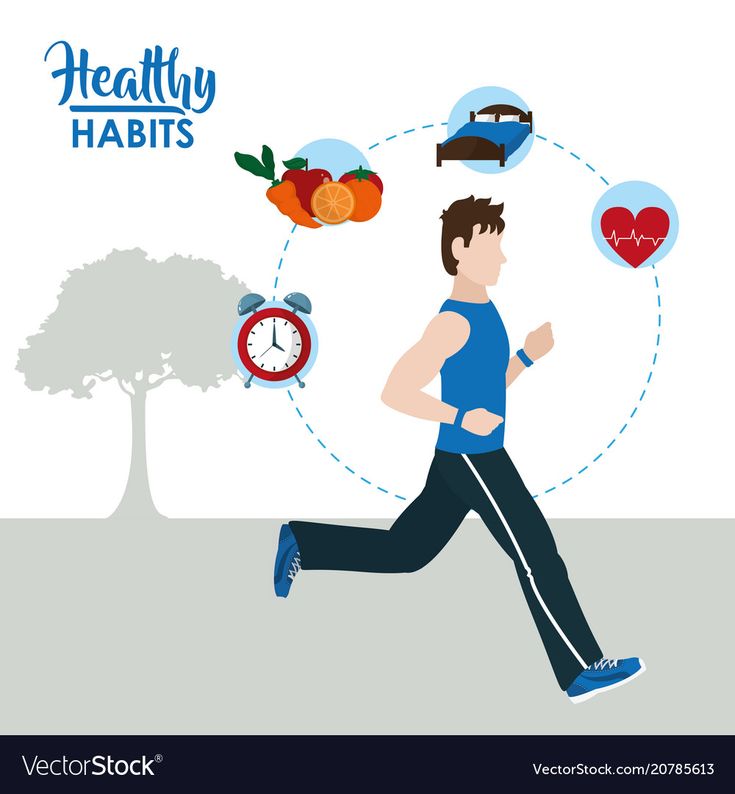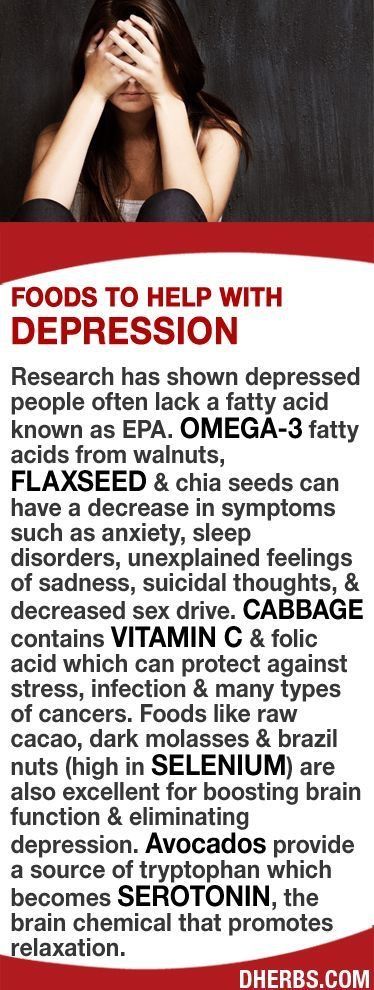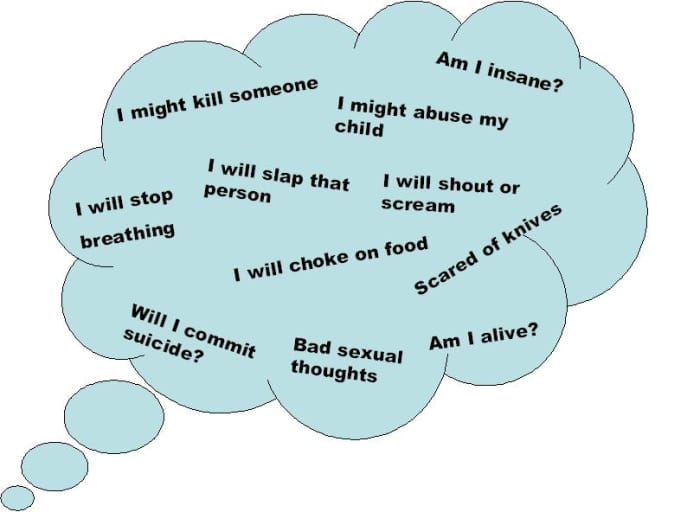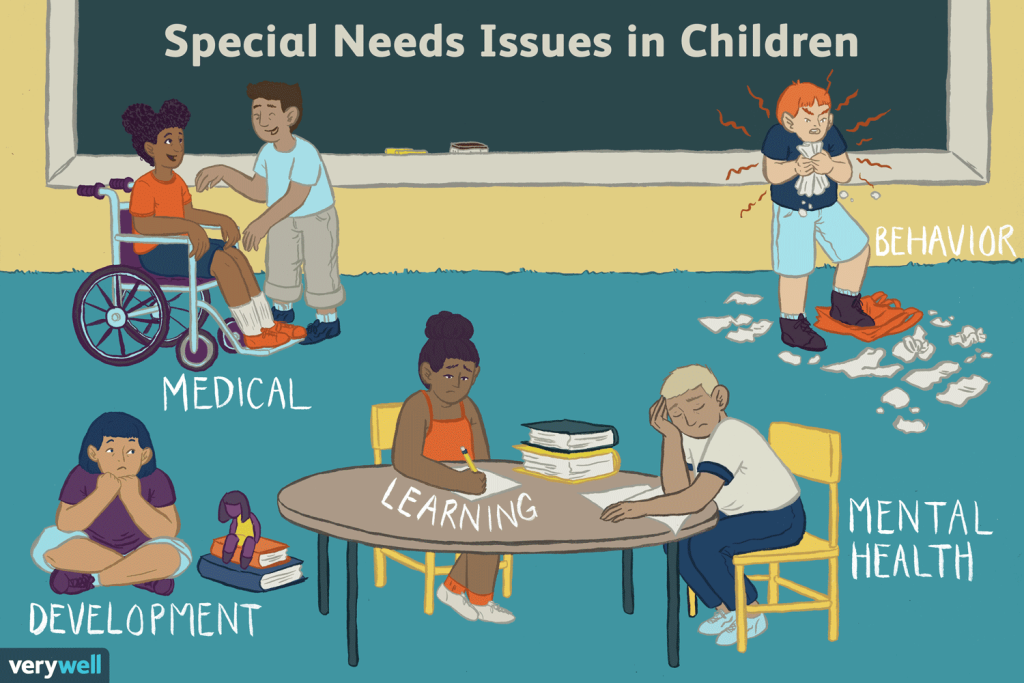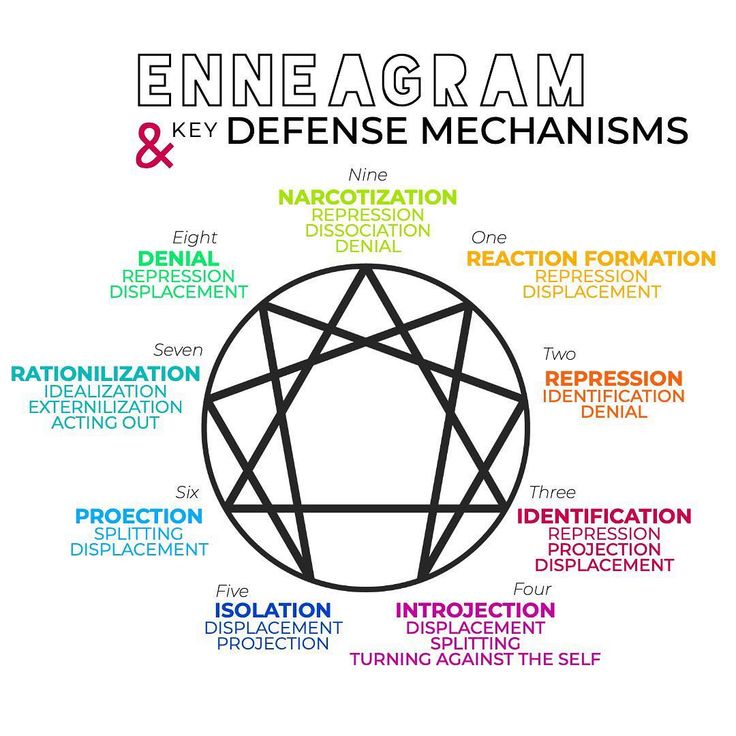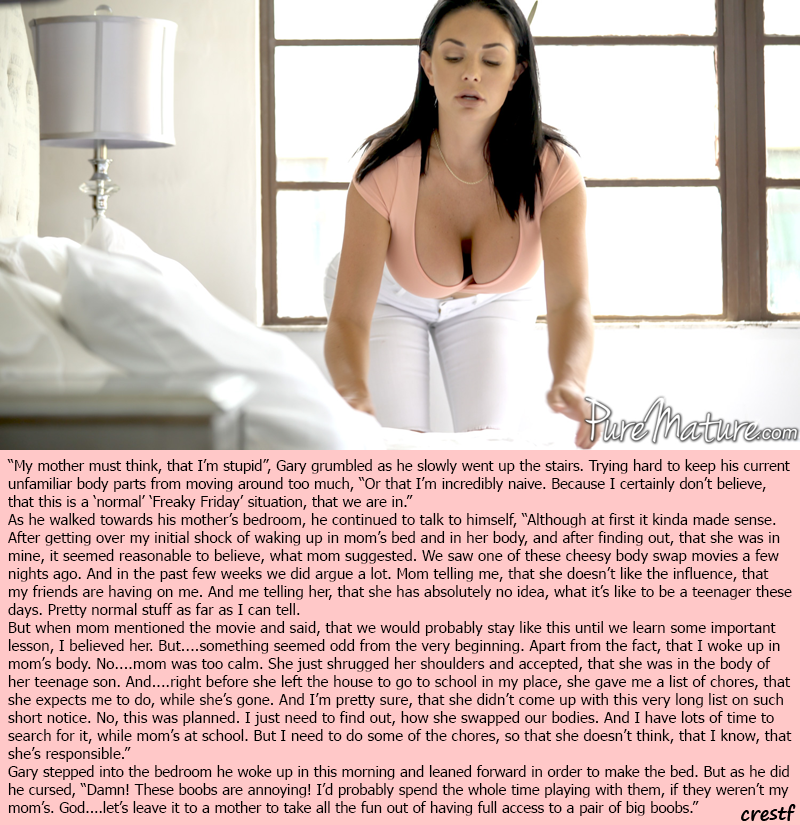Dealing with depression around the holidays
8 Tips for Coping with Depression During the Holidays
By Jerry Joseph, M.D.
Joy. It’s a word most would associate with the holiday season, yet for many of the 320+ million people worldwide suffering from depression, joy might feel nearly impossible this time of the year. According to one study, 38 percent of people surveyed said that their stress levels increased during the holidays.
The holidays tend to be a difficult time for those battling depression. Often this is because of triggers like increased stress, navigating family dynamics and burnout due to a packed schedule of holiday activities and commitments. There are certain coping mechanisms that prove helpful in managing depression during the holidays, but before we get into them, it’s important to remember that feeling blue -- or down and out – is different from suffering from depression*.
Those with depression are prone to certain, specific symptoms occurring for a particular length of time. According to the National Institute of Mental Health, here are some symptoms of depression to watch for, particularly when you have most or all of these symptoms every day for at least two weeks:
- Feeling sad or anxious
- Feeling guilty, helpless, or worthless
- Loss of interest in hobbies and activities that you enjoyed in the past
- Feeling hopeless
- Having less energy or feeling tired
- Too little or too much sleeping
- Having trouble concentrating or making decisions
- Changes in appetite or weight
- Feeling irritable or restless
- Thoughts of suicide or death
If you are suffering from depression heading into the holiday season, here are 8 tips you can use to help you cope:
- Pay attention to your symptoms & manage them early. If you’re someone who suffers from depression, the symptoms we discussed above are likely all too familiar to you.
 Be mindful of these symptoms beginning to surface, and try to be aware of the things you feel may be triggering them. For example, in the past if the stress of finances during the holidays has always triggered symptoms of depression, this year try to budget early and consciously save for the gifts you want to give.
Be mindful of these symptoms beginning to surface, and try to be aware of the things you feel may be triggering them. For example, in the past if the stress of finances during the holidays has always triggered symptoms of depression, this year try to budget early and consciously save for the gifts you want to give. - Surround yourself with a solid support system. Being around those who care most about you during the holidays can help ease depression symptoms, too. Try your best not to isolate yourself. Having your support system close by during the holidays will also ensure you have someone readily available to talk to you should those symptoms begin to surface.
- Keep your plans simple. Depression can suck up your energy and distort your sense of concentration. It’s also known to make decision-making incredibly difficult. Instead of stacking your holiday calendar with an overwhelming number of plans, including those that might involve great concentration and decision-making, focus on the simple activities.
 Set small goals for yourself, and do what you can.
Set small goals for yourself, and do what you can. - Be patient with yourself. Some suffering from depression during the holidays might think, “This is supposed to be a happy time of year. Why can’t I just feel happy?” But, setting unrealistic expectations of being happy around-the-clock during the holidays can often backfire. It’s important to set realistic expectations for yourself during the holidays, and not get discouraged.
- Exercise. Taking care of your body through regular exercise is beneficial to your health for many reasons, but did you know exercise can also help relieve symptoms of depression? So, get up and moving. Do your holiday shopping at the mall versus online to get in extra steps. Grab the shovel to clear your driveway of snow instead of using your snow blower. Walk the neighborhood with friends and do some caroling. Every little bit counts.
- Avoid drinking alcohol. If you’re feeling depressed, you might be tempted to use alcohol as a coping method… but don’t.
 In fact, alcohol can make the symptoms worse. If you anticipate that you might be tempted by alcohol at holiday parties or gatherings, think ahead. Don’t hesitate to bring your own non-alcoholic beverage (or even a mocktail) along with you.
In fact, alcohol can make the symptoms worse. If you anticipate that you might be tempted by alcohol at holiday parties or gatherings, think ahead. Don’t hesitate to bring your own non-alcoholic beverage (or even a mocktail) along with you. - Remember to maintain a healthy diet. As discussed above, many times a symptom of depression is a change in appetite – either losing one’s appetite or wanting to eat more. To counter this, try to remain focused on eating a balanced and healthy diet. Likewise, if you feel you’re going to be tempted to overeat at holiday gathering, bring your own healthy options with you, or be mindful of portion control.
- Seek professional help. At the end of the day, remember to be honest with yourself. If your symptoms are escalating, seek help from your doctor. Find a physician you trust, if you have not already done so. Then, speak with your physician and share the feelings you tend to experience around the holidays and discuss treatment options.
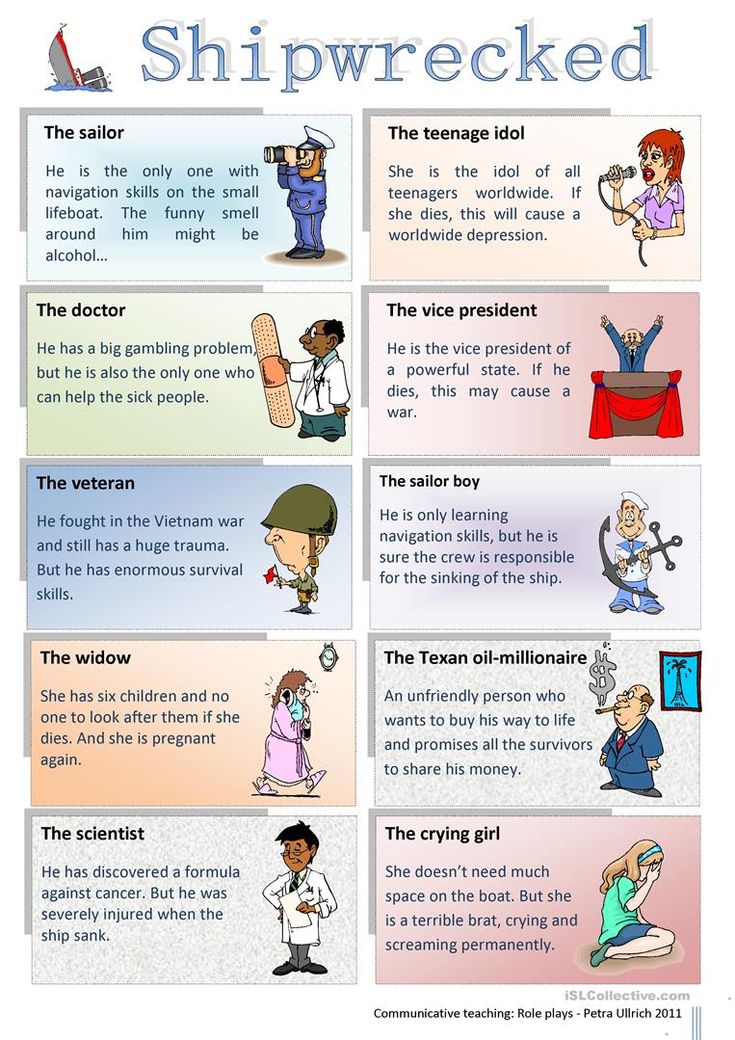 Additionally, you might also consider looking into local conferences or support groups and any helpful clinical websites and books.
Additionally, you might also consider looking into local conferences or support groups and any helpful clinical websites and books.
Next Steps
- Jerry Joseph, M.D. is an attending psychiatrist at Hackensack University Medical Center.
- Learn more about the behavioral health and psychiatry services provided by Hackensack Meridian Health
*Please note that while feeling “blue” and suffering from depression are two different things, the former should also be taken seriously, as it can lead to clinical anxiety and depression, according to the National Alliance on Mental Health. Seek help from a physician when appropriate.
The material provided through Health Hub is intended to be used as general information only and should not replace the advice of your physician. Always consult your physician for individual care.
Source:
American Psychological Association
Understanding the holiday blues | HealthPartners Blog
For many people, the holidays are a time to look forward to. Even with the stresses of meal planning, travel and gift giving, many of us still find it to be a happy time of year. But that isn’t always the case. For some people, the holidays can be a difficult and emotionally exhausting time.
Even with the stresses of meal planning, travel and gift giving, many of us still find it to be a happy time of year. But that isn’t always the case. For some people, the holidays can be a difficult and emotionally exhausting time.
A survey by the American Psychological Association found that 38% of people felt their stress levels increased during the holiday season. Stress can lead to an increased risk of illness, substance misuse, and higher rates of anxiety and depression. This was especially felt during the pandemic, when there were so many questions about how to keep events and family gatherings during COVID-19 safe.
Feeling depressed during the holidays is a very real, but treatable concern. We’ll cover answers to common questions about seasonal depression, as well as how to find help – and support others – this holiday season.
Do depression rates rise during the holidays?
Yes, patterns of increased rates of depression during the holidays have been documented by doctors and mental health professionals for years. And the National Alliance on Mental Illness (NAMI) found that 64% of people living with a mental illness reported that their conditions worsened around the holidays.
And the National Alliance on Mental Illness (NAMI) found that 64% of people living with a mental illness reported that their conditions worsened around the holidays.
Why does this happen? When the holidays come around, they bring a variety of events, social interactions and challenges. Sometimes the resulting stress has to do with the pressure of how many responsibilities someone has. In other cases, it can be tied to complicated memories of the past or anxiety about family gatherings.
But aside from the holidays, many people experience something called Major Depressive Disorder (MDD) with a seasonal pattern (also known as seasonal affective disorder). Seasonal affective disorder is clinical depression that tends to appear in the late fall and can last until early spring. It’s known to be linked with changes in light during the wintertime, so it’s more common in northern climates. The limited exposure to natural light can impact our body’s rhythms and neurochemical balance. It can change your perspective when the days seem shorter, darkness lasts longer, and cold weather keeps us cooped up indoors.
It can change your perspective when the days seem shorter, darkness lasts longer, and cold weather keeps us cooped up indoors.
Research shows that clinical depression with a seasonal pattern impacts as much as 6% of the population. And it’s also common for people who don’t normally struggle with depression to experience it temporarily during the winter months.
What causes depression during the holidays?
The holidays are a stereotypically cheerful time when everyone is meant to be surrounded by loved ones and enjoying every second of the season. But when someone isn’t feeling happy or cheerful, or if they can’t be near their loved ones, the apparent cheer surrounding them can make them feel even more down, and often alone with their feelings – which deepens symptoms of depression.
The holiday months are spent differently by everyone, and personal circumstances play a big part in how and why someone may experience stress or sadness. But here are some of the most common causes for depression during the holidays.
- Generalized stress (this may be due to responsibilities, more social interactions, and less time to relax and recharge)
- Physical and mental fatigue
- Pressures of perceived obligations (may be related to travel, meal planning, gift giving and more)
- Financial stress
- High expectations – often caused by the exaggerated portrayal of the holidays on TV, in movies, the media and on social media
- Travel stress
- Stressful family gatherings
- First holiday season after the passing of someone you love
- Loneliness
- Disappointment over not being able to see family and friends
- Pandemic isolation and worries about gathering safely
What are the symptoms of seasonal depressive disorder and the holiday blues?
The symptoms of seasonal depression are similar to the symptoms of depression that occurs at any time of the year.
- Tiredness or lack of energy
- No longer enjoying activities that you previously liked
- Persistent feelings of guilt, worthlessness or hopelessness
- Change in personal relationships
- Change in sleep patterns
- Change in appetite, or weight loss or gain
- Difficulty concentrating or making decisions
- Difficulty working
- General irritability
- Self-harm
Can someone who normally does not suffer from depression be depressed over the holidays?
Yes. This can be related to a diagnosis of Major Depressive Disorder with a seasonal pattern, but not always. The holiday season comes with its own set of stressors and expectations, both internally and externally. Being overwhelmed by these holiday-related stressors can lead to symptoms of depression.
This can be related to a diagnosis of Major Depressive Disorder with a seasonal pattern, but not always. The holiday season comes with its own set of stressors and expectations, both internally and externally. Being overwhelmed by these holiday-related stressors can lead to symptoms of depression.
What should loved ones do to support someone with symptoms of depression during the holidays?
Check in with your family and friends often
Even the ones who seem like they’re doing well. Sometimes people are able to smile and hide their feelings of anxiety or depression behind a brave face. When really, they could benefit from talking to someone about how they’re truly doing. When someone takes time and care to reach out, it reinforces that we are seen and have supportive people in our lives.
Listen with sympathy
You don’t have to understand how someone is feeling to have respect for it. Being there to let someone express their feelings in a safe environment can be very impactful for someone going through depression. Try to engage by responding with supportive statements or asking follow-up questions. Avoid telling them to cheer up or saying “Well, things could be worse.” These kinds of remarks can invalidate and minimalize the other person’s feelings, which might make them regret opening up. To learn more about what to say and what not to say to someone who is struggling, Make It OK.org has some great resources.
Try to engage by responding with supportive statements or asking follow-up questions. Avoid telling them to cheer up or saying “Well, things could be worse.” These kinds of remarks can invalidate and minimalize the other person’s feelings, which might make them regret opening up. To learn more about what to say and what not to say to someone who is struggling, Make It OK.org has some great resources.
Gently suggest talking to a professional
Encourage your friend or loved one to meet with a mental health professional. They can do an individualized assessment to help determine what that specific person needs in order to start feeling better. With professional support, people with depression (whether seasonal or otherwise) can learn long-term ways to manage stress, navigate complex emotions and situations, and find peace – especially during the holidays.
What can someone with depression do during the holidays to take care of themselves?
There are many ways to take care of your mental well-being during the holidays.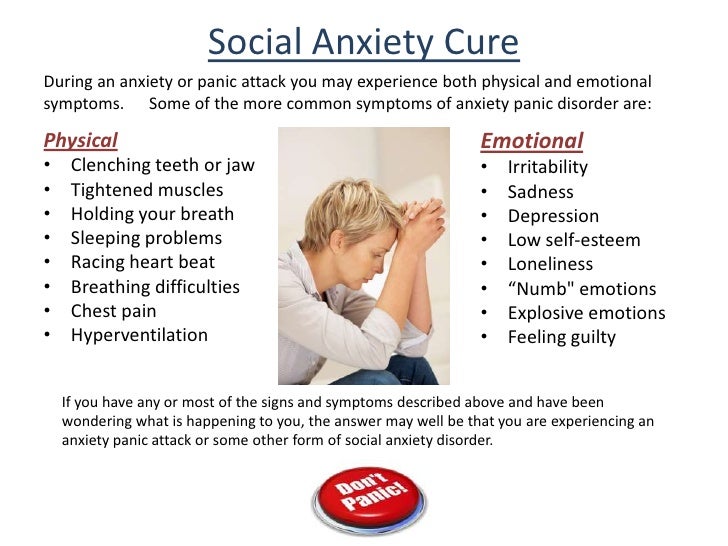 Some of these strategies may work better for you than others. But be sure to try a few to find what works best and makes a difference in how you’re feeling.
Some of these strategies may work better for you than others. But be sure to try a few to find what works best and makes a difference in how you’re feeling.
- Make sure your expectations are realistic. Ask yourself if you’re expecting too much from yourself. Or perhaps whether you’re expecting too much from someone else. Then, see how those expectations are making you feel. Are they helpful or stressful?
- Practice saying ‘no’. You’re one person, and there’s only so much you can do in a given day or a given holiday. Remind yourself that it’s okay to say no.
- Limit external sources of holiday pressure. Maybe take a break from social media if seeing other people’s holiday photos is causing you to engage in self-comparison. Find winter activities to enjoy (either solo or with others) that aren’t associated with the holidays – like snowshoeing, for example.
- Don’t slack on self-care. If going to yoga helps you cope with stress, keep doing that. If spending time with friends or family helps, connect with them often.
 Take time for yourself and be open to experimenting with new self-care strategies.
Take time for yourself and be open to experimenting with new self-care strategies. - Talk to a mental health professional. Talk therapy can help you cope with stress and symptoms of anxiety and depression. And if you’re dealing with holiday-related stress or season affective disorder, your therapist may also recommend light box therapy, medication or helpful lifestyle changes to help alleviate some of your symptoms.
Don’t wait to talk to someone about the holiday blues
The holidays can present a number of challenges. And when it comes to stress and mental health matters, sometimes there’s a tendency to want to wait it out and see how things go. But if you’re feeling anxious or depressed, now is the time to talk to someone.
Connect with trusted family members or friends to share how you’re feeling and let some of that weight off your shoulders. Since stress during the holidays is so common, they might even be feeling the same way. Knowing someone else can relate and is there for support can make you both feel better. You can also reach out to a mental health professional. Together, you’ll be able to talk through what you’re experiencing, find ways to lower your stress and get back to feeling more like yourself again – this holiday season and beyond.
You can also reach out to a mental health professional. Together, you’ll be able to talk through what you’re experiencing, find ways to lower your stress and get back to feeling more like yourself again – this holiday season and beyond.
Holiday depressive disorder
The holidays are a time of happiness and joy, but for some people, the holiday season can be a time of painful reflection, sadness, loneliness, anxiety, and depression.
- Causes of holiday depression
- Who is at risk?
- Symptoms of holiday depressive disorder
- Holiday depressive disorder or major depression? nine0006
- How to deal with holiday depressive disorder during the holidays?
Feelings of sadness that continue during the holiday season, usually from November to January, are often referred to as holiday depression. It is generally less severe and shorter in duration than clinical major depression, but negative feelings can significantly affect your ability to function normally at this time of year.
Even people who love the holidays can feel down during the busy holiday season when emotions and expectations run high, leaving many of them feeling stressed and tired. nine0003
Holiday depressive disorder is not a recognized disorder, but this does not mean that short-term mental health problems should be ignored. Even mild and relatively short problems can contribute to longer lasting symptoms of depression and anxiety.
The holidays can be a particularly stressful time for those already dealing with mental health problems. In a survey conducted by the National Alliance on Mental Illness, USA, 64% of people with existing mental illness report worsening during the holiday period. nine0003
Causes of Holiday Depressive Disorder
Shopping, parties, family responsibilities, and visiting guests can contribute to feelings of depression and heightened tension. Among other causes of depressive disorder during the holidays, the following are distinguished:
- stress
- fatigue
- unfulfilled expectations
- over-commercialization
- financial stress
- inability to be with family and friends
- tension with relatives
- poor social support, isolation and loneliness
- burnout
- nostalgia for the holidays of the past
Who is at risk?
- Older people are more prone to holiday depressive disorder
- Women are more prone to depression than men
- People who do not consider themselves depressed (but actually are), tend to be stressed, drink more alcohol, eat too much food, and may experience headaches or trouble sleeping
- Recently separated or widowed
- Small business owners
- People who care for elderly parents
- Former drug addicts or alcoholics
- Children of divorced parents
It's not just adults who develop holiday depression.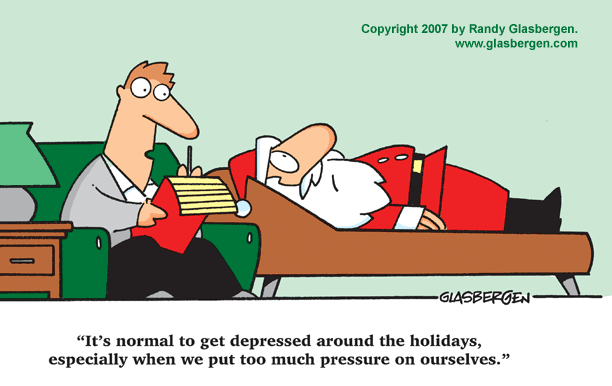 Changes in routine, dealing with family issues, busy friends, and feeling stressed about the holidays can contribute to feelings of sadness and anxiety in children. Watch for signs and check with your child's pediatrician if you are concerned. nine0003
Changes in routine, dealing with family issues, busy friends, and feeling stressed about the holidays can contribute to feelings of sadness and anxiety in children. Watch for signs and check with your child's pediatrician if you are concerned. nine0003
Symptoms of Holiday Depressive Disorder
The most common symptom of holiday depression is a persistent or recurring feeling of sadness that begins during the holiday season. This feeling can vary in intensity and duration. Some people may occasionally feel down but feel short periods when they feel more optimistic. In others, there may be a milder or more severe feeling of depressive disorder that lasts for a longer time. nine0003
Some signs of holiday depressive disorder may include:
- Feeling tired and tired
- Desire to sleep much more or much less than usual
- Loss of interest in activities you normally enjoy
- Lack of pleasure in ordinary activities
- Problems with decision making
- Difficulty of concentration
- Reluctance to communicate with friends and family
- Loneliness
- Feeling annoyed or angry
People who do not consider themselves depressed may experience the following stress reactions:
- headaches
- overeating
- insomnia
- excessive drinking
- fatigue
- tearfulness
- mood swings
- irritability
- concentration problems
- body aches
- loss of libido
Unfortunately, people sometimes turn to unhealthy coping mechanisms to cope with sadness and stress. Excessive alcohol consumption, overeating, and poor sleep can worsen depression symptoms.
Excessive alcohol consumption, overeating, and poor sleep can worsen depression symptoms.
Holiday depressive disorder or major depression?
There is a difference between having holiday depressive disorder, where symptoms resolve after the holidays are over, and a more serious condition such as seasonal affective disorder or clinical major depression. If your mental state does not improve, you should talk to your doctor or mental health professional to determine if what you are feeling is causing seasonal, temporary sadness, or a more long-term, more serious mental health problem. nine0003
If you have not been diagnosed with major depressive disorder, your doctor will probably not prescribe medication. In many cases, you can deal with holiday depression on your own with lifestyle changes and social support.
How to deal with holiday depressive disorder during the holidays?
In addition to talking to a doctor or mental health professional, there are a number of things you can do on your own to help you cope.
Do not abuse alcohol
Alcohol is a depressant and drinking too much can make any negative feelings worse. This does not mean that you need to completely deny yourself alcohol. Instead, limit your drinking and avoid using alcohol as a way to deal with or avoid difficult emotions. Try to limit alcohol consumption at social gatherings to one or two drinks.
Do not isolate yourself
Social isolation can be a major risk factor for depression. The problem is that sadness often makes us hide at home. nine0003
Look for ways to enjoy social connections even if you can't go home for the holidays. Employees and friends can offer support by inviting guests over or asking to come visit you.
Try to get regular exercise
While it can be difficult to stick to your exercise schedule when you're feeling down, research has shown that regular exercise plays an important role in preventing and reducing symptoms of depression. nine0003
In a study published in the American Journal of Psychiatry, researchers found that just one hour of physical activity per week was enough to prevent future depression.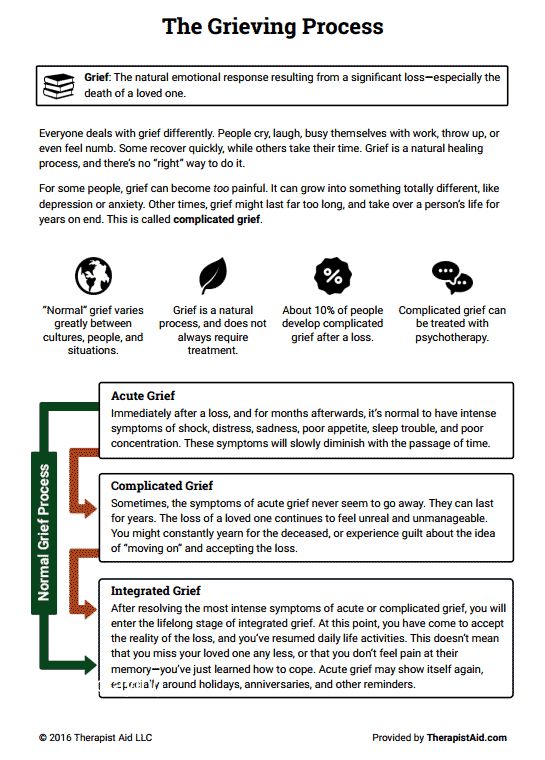
When you're stressed, busy, or sad, remember that you don't have to be a slave to a treadmill or weight machine to feel the benefits. Even daily activities such as a short daily walk can be enough to keep depression at bay.
Realistic expectations
Holidays don't have to be perfect to be special. They don't have to be the same as the holidays of the past. The main thing is to focus on current connections, create new traditions and remember past holidays with love, enjoying what lies ahead for you.
References:
- https://www.verywellmind.com/holiday-blues-4771716
- https://local12.com/news/nation-world/its-the-most-wonderful-time-of-the-year-unless-you-experience-holiday-depression-11-28-2019-091055979
- https://www.webmd.com/depression/holiday-depression-stress#1
to the list of articles Find a doctor
Holiday depressive disorder
The holidays are a time of happiness and joy, but for some people, the holiday season can be a time of painful reflection, sadness, loneliness, anxiety, and depression.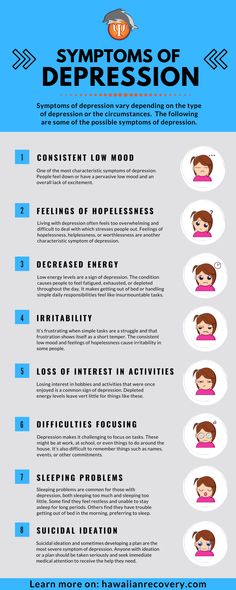
- Causes of holiday depression nine0005 Who is at risk?
- Symptoms of holiday depressive disorder
- Holiday depressive disorder or major depression?
- How to deal with holiday depressive disorder during the holidays?
Feelings of sadness that continue during the holiday season, usually from November to January, are often referred to as holiday depression. It is generally less severe and shorter in duration than clinical major depression, but negative feelings can significantly affect your ability to function normally at this time of year. nine0003
Even people who love the holidays can feel down during the busy holiday season when emotions and expectations run high, leaving many feeling stressed and tired.
Holiday depressive disorder is not a recognized disorder, but this does not mean that short-term mental health problems should be ignored. Even mild and relatively short problems can contribute to longer lasting symptoms of depression and anxiety. nine0003
nine0003
The holidays can be a particularly stressful time for those who already have mental health problems. In a survey conducted by the National Alliance on Mental Illness, USA, 64% of people with existing mental illness report worsening during the holiday period.
Causes of Holiday Depressive Disorder
Shopping, parties, family responsibilities, and visiting guests can contribute to feelings of depression and increased tension. Among other causes of depressive disorder during the holidays, the following are distinguished: nine0003
- stress
- fatigue
- unfulfilled expectations
- over-commercialization
- financial stress
- inability to be with family and friends
- tension with relatives
- poor social support, isolation and loneliness
- burnout
- nostalgia for the holidays of the past
Who is at risk?
- Older people are more prone to holiday depressive disorder
- Women are more prone to depression than men
- People who do not consider themselves depressed (but actually are), tend to be stressed, drink more alcohol, eat too much food, and may experience headaches or trouble sleeping
- Recently separated or widowed
- Small business owners
- People who care for elderly parents
- Former drug addicts or alcoholics nine0005 Children of divorced parents
It's not just adults who develop holiday depression. Changes in routine, dealing with family issues, busy friends, and feeling stressed about the holidays can contribute to feelings of sadness and anxiety in children. Watch for signs and check with your child's pediatrician if you are concerned.
Changes in routine, dealing with family issues, busy friends, and feeling stressed about the holidays can contribute to feelings of sadness and anxiety in children. Watch for signs and check with your child's pediatrician if you are concerned.
Symptoms of Holiday Depressive Disorder
The most common symptom of holiday depression is a persistent or recurring feeling of sadness that begins during the holiday season. This feeling can vary in intensity and duration. Some people may occasionally feel down but feel short periods when they feel more optimistic. In others, there may be a milder or more severe feeling of depressive disorder that lasts for a longer time. nine0003
Some signs of holiday depressive disorder may include:
- Feeling tired and tired
- Desire to sleep much more or much less than usual
- Loss of interest in activities you normally enjoy
- Lack of pleasure in ordinary activities
- Problems with decision making
- Difficulty of concentration
- Reluctance to communicate with friends and family
- Loneliness
- Feeling annoyed or angry
People who do not consider themselves depressed may experience the following stress reactions:
- headaches
- overeating
- insomnia
- excessive drinking
- fatigue
- tearfulness
- mood swings
- irritability
- concentration problems
- body aches
- loss of libido
Unfortunately, people sometimes turn to unhealthy coping mechanisms to cope with sadness and stress.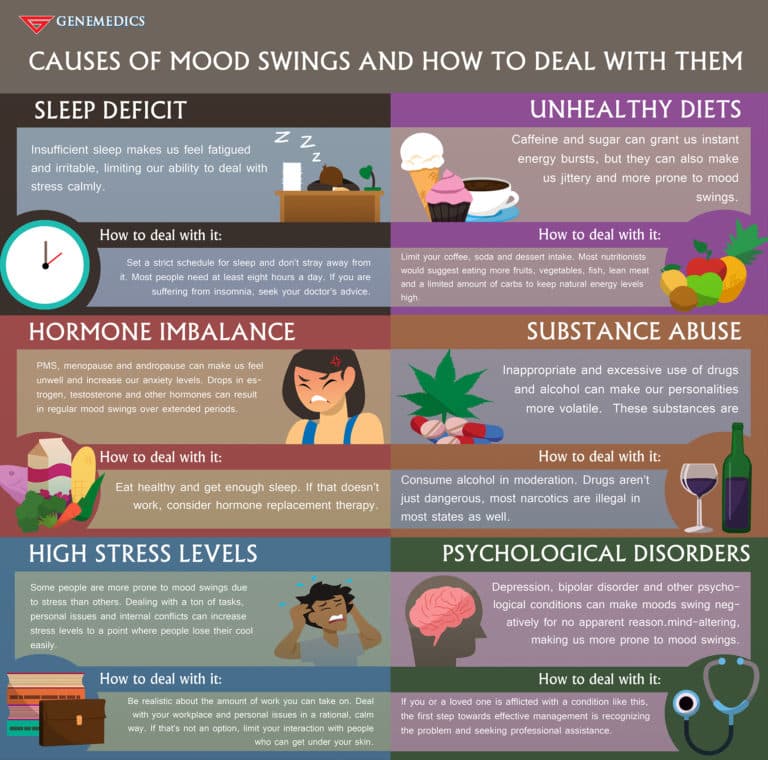 Excessive alcohol consumption, overeating, and poor sleep can worsen depression symptoms.
Excessive alcohol consumption, overeating, and poor sleep can worsen depression symptoms.
Holiday depressive disorder or major depression?
There is a difference between having holiday depressive disorder, where symptoms resolve after the holidays are over, and a more serious condition such as seasonal affective disorder or clinical major depression. If your mental state does not improve, you should talk to your doctor or mental health professional to determine if what you are feeling is causing seasonal, temporary sadness, or a more long-term, more serious mental health problem. nine0003
If you have not been diagnosed with major depressive disorder, your doctor will probably not prescribe medication. In many cases, you can deal with holiday depression on your own with lifestyle changes and social support.
How to deal with holiday depressive disorder during the holidays?
In addition to talking to a doctor or mental health professional, there are a number of things you can do on your own to help you cope.
Do not abuse alcohol
Alcohol is a depressant and drinking too much can make any negative feelings worse. This does not mean that you need to completely deny yourself alcohol. Instead, limit your drinking and avoid using alcohol as a way to deal with or avoid difficult emotions. Try to limit alcohol consumption at social gatherings to one or two drinks.
Do not isolate yourself
Social isolation can be a major risk factor for depression. The problem is that sadness often makes us hide at home. nine0003
Look for ways to enjoy social connections even if you can't go home for the holidays. Employees and friends can offer support by inviting guests over or asking to come visit you.
Try to get regular exercise
While it can be difficult to stick to your exercise schedule when you're feeling down, research has shown that regular exercise plays an important role in preventing and reducing symptoms of depression. nine0003
In a study published in the American Journal of Psychiatry, researchers found that just one hour of physical activity per week was enough to prevent future depression.
